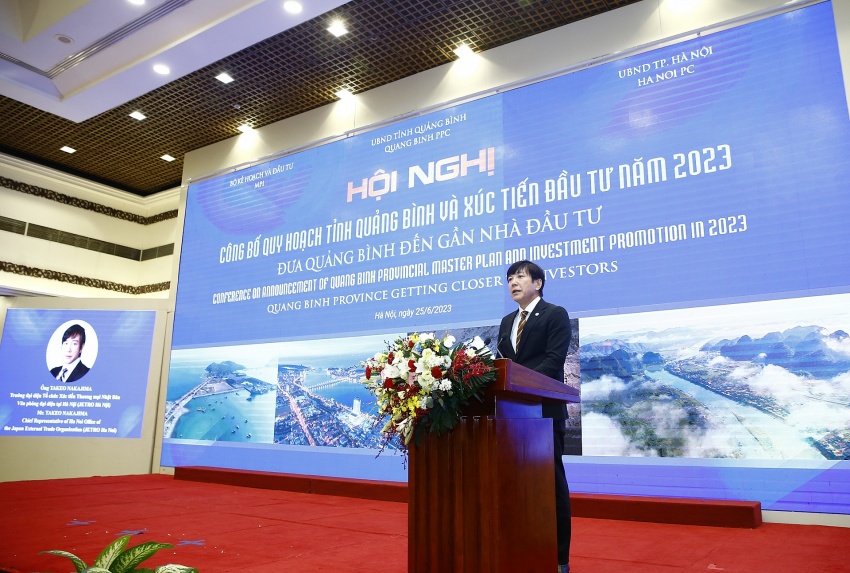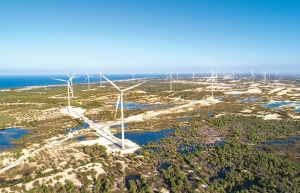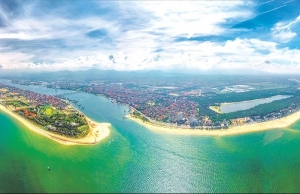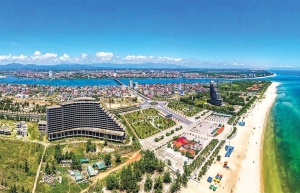JETRO believes in enticing prospects for Quang Binh
 |
| Chief representative of JETRO Hanoi Takeo Nakajima |
At the conference on Quang Binh's master plan and investment promotion on June 25, chief representative of the organisation (JETRO) in Hanoi, Takeo Nakajima, highly appreciated the strengths of Quang Binh.
Quang Binh has a population of nearly one million people and has developed 10 economic zones and industrial zones and good logistics infrastructure, such as Hon La Seaport and Dong Hoi Airport.
"Quang Binh is favourable to develop renewable energy projects, including in wind power and solar power," Nakajima said. "Production and trade in the renewable energy sector will be promising."
He also saw great potential for the province to become an attractive tourist destination by taking advantage of world heritage and recreational resources.
"Investment by foreign-invested companies is spreading from urban areas to provincial cities and we see a lot of opportunities," said the JETRO representative.
Specifically, priorities of Japanese companies and their expectations for Vietnamese localities focus on cost competitiveness, Nakajima revealed. According to a survey by JETRO, current risks in Vietnam include workers' salary increases and rising procurement costs.
"Japanese companies always look for low-cost production possibilities. They want to know the advantages of producing in Quang Binh compared to producing near Hanoi and exporting goods to foreign markets via Haiphong ports," he said.
Around three-quarters of Japanese businesses in Vietnam will promote human resource development and an average of two-thirds of ASEAN businesses said the same, meaning that human resources are a key factor in the country.
Currently, there are nearly 500,000 Vietnamese people working in Japan. They will gain experience there and return to Vietnam to exercise leadership roles. Then, they will return to Japan or other countries and be appointed to more important positions.
"Foreign-invested enterprises want such a staffing cycle, especially for young people in Quang Binh," he emphasised.
Moreover, with the increase in sustainable procurement around the world, companies must go green in their entire production processes. 67 per cent of Japanese enterprises in Vietnam have initiated, or will, carbon reduction campaigns in their business activities. Products with low green content will be difficult to sell.
"If Vietnam wants to become a manufacturing hub with high added value, a stable power supply is very important, as well as reducing fossil fuel consumption," Nakajima proposed.
Japanese companies are stepping up efforts to increase production in Vietnam. The amount of foreign direct investment has decreased on-year due to the instability of the global economy and the decline in business confidence. However, the number of investments is growing faster than last year.
"A number of export-oriented companies in the automotive, power, and electronic components sectors have shifted some of their production from China and Japan, underscoring the enhancement of Vietnam's importance," he confirmed.
Furthermore, Vietnam is becoming a research and development and high value-added manufacturing hub. Such companies as Fujikin, Panasonic, and Osaka University are turning Vietnam into a technology development hub in the region.
"Some 35 per cent of Japanese enterprises will become high value-added production, while 30 per cent of enterprises will focus on the general manufacturing industry," he added.
 | Industry and energy lead focus for Quang Binh growth Quang Binh has identified industrial development as a game changer for the central province, enticing investment into power production, renewable energy, and processing and manufacturing. |
 | Bringing Quang Binh closer to investors The central province of Quang Binh is preparing for all possibilities when it comes to breakthrough growth. Vu Dai Thang, member of the Party Central Committee and Secretary of Quang Binh Party Committee, shared with VIR’s Thanh Pham efforts to bring the province closer to investors. |
 | Quang Binh: Acquiring investment opportunities via smart planning Upgrading urban centres and economic corridors are among Quang Binh’s top priorities to bring a multitude of opportunities to both domestic and international investors. |
What the stars mean:
★ Poor ★ ★ Promising ★★★ Good ★★★★ Very good ★★★★★ Exceptional
 Tag:
Tag:
Related Contents
Latest News
More News
- Ho Chi Minh City attracts nearly $980 million in FDI in early 2026 (March 02, 2026 | 10:57)
- Businesses bouncing back after turbulent year (February 27, 2026 | 16:42)
- VinaCapital launches Vietnam's first two strategic-beta ETFs (February 26, 2026 | 09:00)
- PM sets five key tasks to accelerate sci-tech development (February 26, 2026 | 08:00)
- PM outlines new tasks for healthcare sector (February 25, 2026 | 16:00)
- Citi report finds global trade transformed by tariffs and AI (February 25, 2026 | 10:49)
- Vietnam sets ambitious dairy growth targets (February 24, 2026 | 18:00)
- Vietnam, New Zealand seek level-up in ties (February 19, 2026 | 18:06)
- Untapped potential in relations with Indonesia (February 19, 2026 | 17:56)
- German strengths match Vietnamese aspirations (February 19, 2026 | 17:40)




























 Mobile Version
Mobile Version